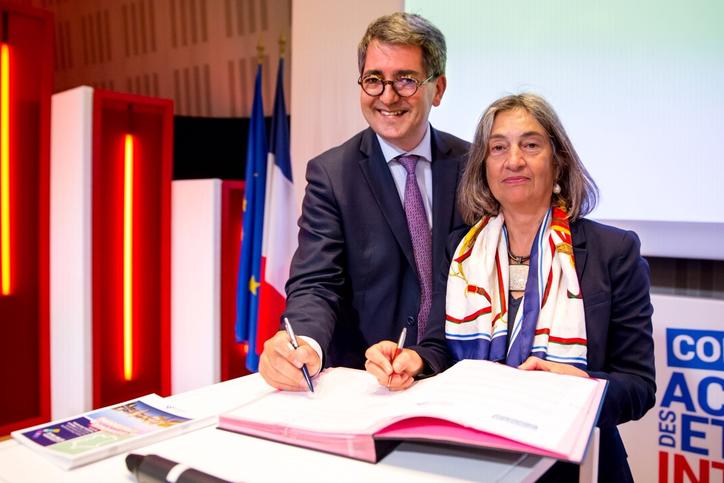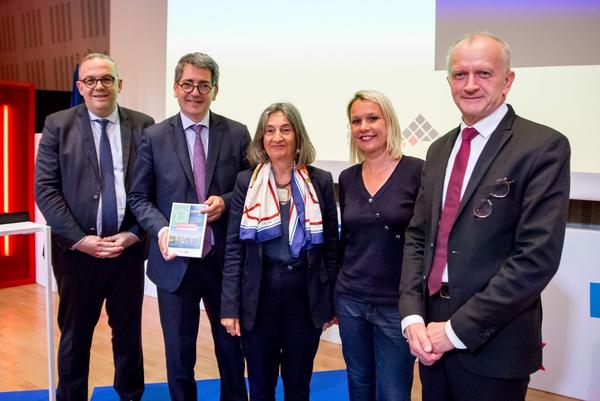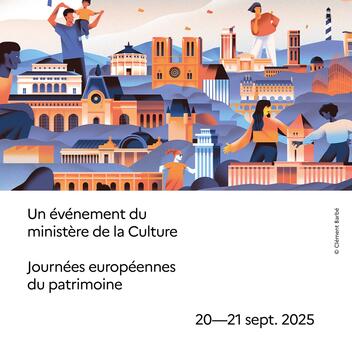
Campus France and the Grand Est region team up for student mobility
Campus France is putting its know-how to work to widen the international reach of institutions of higher education and research in the country’s Grand Est region. A partnership agreement was signed in Strasbourg on May 15 on the sidelines of a Campus France colloquium on international student services.
A l'occasion du colloque Campus France "Accueil des étudiants internationaux" qui se tient cette année à Strasbourg, dans les locaux de l'ENA, Jean Rottner, président de la région Grand Est et Béatrice Khaiat, directrice générale de Campus France ont signé une convention de partenariat sur la période 2019/2021 afin de :
- Développer la promotion à l'international des établissements d'enseignement supérieur et de recherche de la région Grand Est
- Accroître la mobilité étudiante.
Les atouts de la région Grand Est
Le Grand Est, seule région de France à disposer d’une frontière commune avec quatre pays et située au cœur de l’Europe est un territoire ouvert, solidement ancré dans les dynamiques d’échanges nationaux, européens et mondiaux. Parce que le Grand Est dispose d’un potentiel de développement et d’attractivité remarquable, la Région entretient au quotidien des coopérations et des synergies dans de nombreux domaines, notamment ceux de la recherche et de l’enseignement supérieur. Avec l’objectif de renforcer son rayonnement à l’international, elle s’engage en faveur de la mobilité des étudiants à travers différents dispositifs (bourses d’études par exemple) et des actions de promotion.
En quelques chiffres
- 206 000 étudiants inscrits dans un établissement du Grand Est dont 15% d’étudiants de nationalité étrangère,
- 4ème région d’accueil en France avec 28 800 étudiants internationaux,
- 11 500 chercheurs travaillent sur le territoire régional,
- 5 universités et plus de 60 écoles d’ingénieurs, d’art, de commerce, d’architecture,
- 403 millions d’euros d’apport économique annuel en Grand Est par la présence sur le territoire des étudiants internationaux.
Les objectifs du partenariat
L’objectif poursuivi est d’accroître le rayonnement du Grand Est à l’international dans le domaine de l’enseignement supérieur et de la recherche, notamment grâce au savoir-faire de Campus France. Ainsi, les principaux axes de coopération reposent sur :
- une analyse du positionnement à l’international de l’enseignement supérieur et de la recherche de la région,
- un ensemble d’actions de promotion internationale des établissements d’enseignement supérieur de la région, de leur offre de formation et des dispositifs spécifiques mis en place par la Région (accueil, bourses, etc.),
- le développement d’un réseau d’anciens étudiants étrangers de la région, notamment grâce à la plateforme France Alumni, le réseau des Espaces Campus France dans le monde, et le réseau des postes diplomatiques français à l’étranger.
Campus France développe ainsi depuis plusieurs années une expertise dans la gestion de la mobilité (placement des boursiers) ainsi que dans l’accompagnement des collectivités territoriales souhaitant renforcer leur présence à l’international auprès d’étudiants et chercheurs.

Related contents
Recommended News





















































